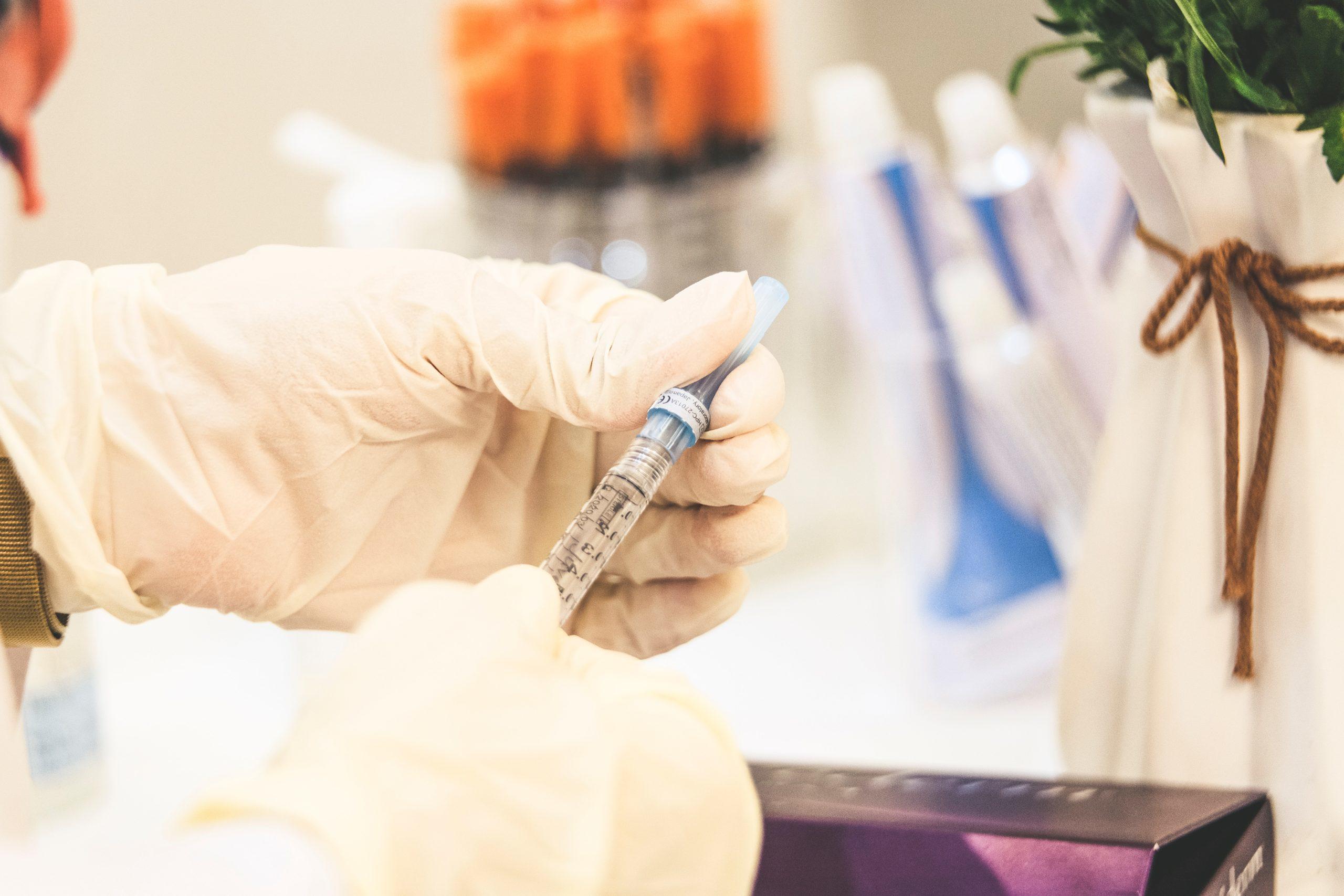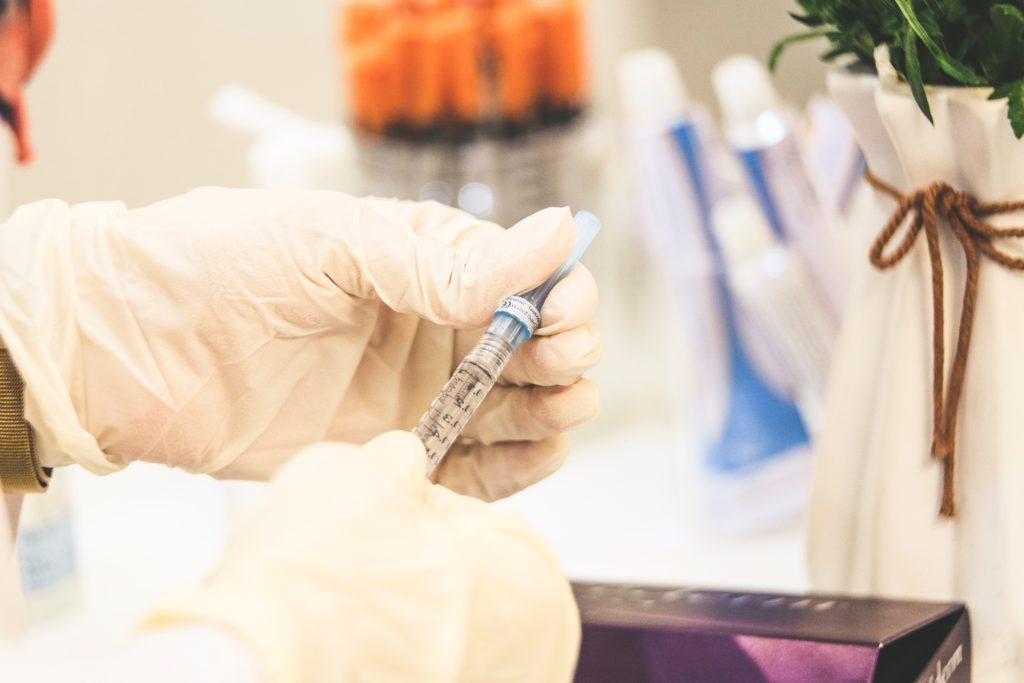How Has COVID Affected Pharmaceutical Manufacturing?
 5 years ago
By Charlotte Di Salvo
5 years ago
By Charlotte Di Salvo

In 2020 the COVID-19 pandemic threw the world into turmoil. The pharmaceutical industry needed to adapt rapidly to meet an increased demand, shifting clinical trials to virtual platforms and of course looking to accelerate COVID vaccine approval. It has become clear that a significant shift has occurred in the pharmaceutical industry, especially manufacturing. The impact of the pandemic has seen both positive and negative consequences, which in the long-term could result in permanent changes to how pharmaceutical companies operate.
For daily articles on the latest pharma trends and innovations, as well as interviews with leading experts and in-depth industry White Papers, subscribe to PharmaFeatures.com.
Short-term impact
Demand change
A sudden spike in demand for pharmaceutical products was one of the first challenges at the start of the pandemic. Panic buying contributed significantly to a shortage of over-the-counter medication, especially paracetamol, due to conflicting reports about the safety of ibuprofen with COVID-19. In addition, fears about the risk of pre-existing conditions saw periodic shortages in the market for chronic disease medication. A study in the US indicated that from the 13th to the 21st of March 2020, asthma medications spiked by 65%, and type 2 diabetes medications increased by 25%.
The increased demand for assigning patients to ventilators also contributed to related prescription medicine shortages. This is defined as a supply issue that affects how the pharmacy prepares or dispenses a drug product or influences patient care when prescribers must use an alternative agent. In order to manage the increasing number of hospitalisations, hospital units utilised respiratory prescription medication like albuterol and fluticasone to try and stabilise critically ill patients.
Respiratory medication, sedatives and pain treatment saw an increase of use in hospitals of 100% to 70% in the US since the beginning of January 2020. As the number of hospital cases rocketed, increased quantities were in demand, which consequently caused shortages for prescriptions which put further pressure on pharmaceutical supply chains. In a recent white paper, a survey saw 46% of 532 global supply chain leaders experience shortages for COVID-19-related and unrelated therapeutics during the pandemic. These companies included pharmaceutical organisations, wholesale distributors, hospitals and pharmacies. This highlights one of the main issues in the short-term, which was a slow response and resolution to major disruptions in supply chains.
Distribution challenges
Despite pharmaceutical companies increasing production capacity to meet demand, the supply of products across the globe was hindered by a number of logistical challenges. National lockdowns and a quarantined workforce greatly contributed to reduced transportation capacity of pharmaceutical products. Imposed travel restrictions also had a significant impact on drug productions, especially “if an API [an active pharmaceutical ingredient] is made in one country and must be shipped to another for final formulation.”
The implementation of safety protocols and limited onsite inspections caused concerns about quality checks throughout the supply chain from raw materials through to APIs. According to a recent publication, China and India are the world’s main supplies of APIs. During the pandemic however, as the countries scrambled to cope with rising cases and deaths, drug production no doubt suffered from a depleted workforce and restrictions. The global impact of this was more critical when production of non-substitutional essential APIs, such as amoxicillin, was hindered.
Long-term impact
Delayed approvals for non-COVID-related pharmaceutical product
Across the globe, pharmaceutical companies came under immense pressure rapidly to develop and approve COVID-19 vaccines in a short period of time. As a result, a substantial proportion of time, resources and capital was funneled into vaccine research and drug development.
Unfortunately, this halted pharmaceutical production for a vast number of non-COVID therapeutic products which has a substantial impact for a number of chronic conditions. In December 2020, the FDA postponed approval of an important new cholesterol therapy, inclisiran, from Novartis. The postponement came from concerns surrounding the production of the drug by the European contract manufacturer. According to a press release by Novartis, the drug failed approval due to “unresolved facility inspection-related conditions” not because of concerns around drug safety or efficacy. Unfortunately due to the COVID-19 travel restrictions, the problem is yet to be resolved.
Oncology therapeutics continue to be impacted by logistical challenges. In November 2020, approval for immunotherapy CAR-T treatment by Bristol Myers Squibb (BMS) was delayed due to travel restrictions which prevented inspection of the manufacturer’s production facility in Texas. CAR-T therapy is emerging as a potentially effective immunotherapy treatment for cancer patients.
Immunotherapy is an important part of cancer research, aiming to develop therapeutic options for patients resistant to conventional treatment or intolerable of the extensive side effects. Unfortunately, delayed approval prolongs the time till the drug can be marketed and accessible to patients. This particular therapy by BMS is targeted for diffuse large B-cell lymphoma. DLBCL is an aggressive condition and many patients have advanced disease at diagnosis. As a result, delayed approval for this potentially effective therapy could impact the lives of many patients.
The development of self-sufficiency
The export bans from India and China, who are main suppliers of API, has seen a shift in the pharma industry to consider self-sufficiency in the supply chain. According to a recent article, US-based companies like Phlow are seeking continuous manufacturing to produce APIs in the USA. In May 2020, Phlow was awarded a $354 million contract by The U.S. Department of Health and Human Services in order to manufacture COVID-19 treatment and other drugs in short supply.
It also appears vaccine manufacturing is moving across to Europe, with Italy seeking to manufacture COVID-19 vaccines in the country. According to the financial times, Rome has discussed the domestic production of mRNA-based vaccines with US biotech Moderna, Switzerland’s Novartis and Italy’s ReiThera. The hope is that the doses manufactured in Italy will boost the overall vaccine manufacturing capacity in order to meet current demand and compensate for some of the countries in which AstraZeneca failed to meet delivery targets. This was an issue highlighted in a recent article, which stated that the target delivery of 40 million doses in the first quarter by AstraZeneca was reduced to an estimated 30 million doses.
Despite the pharmaceutical industry experiencing difficult challenges with drug development and manufacturing, some positive changes have developed from the crisis. Countries across the globe have become increasingly self-sufficient in their manufacturing of pharmaceutical products in order to mitigate potential issues with external supply chains.
Furthermore, the digital innovations that have enabled some clinical research to continue throughout the pandemic have enabled drug approval to continue for therapeutic areas. The hope is that the changes to logistics and manufacturing in adapting to the pandemic will continue to streamline the pharmaceutical industry for the future of drug development and manufacturing.
Charlotte Di Salvo, Junior Medical Writer
Proventa International

Navigating the Complex World of Global Regulatory Affairs in Oncology
In today's fast-paced global pharmaceutical landscape, the regulatory affairs sector plays a pivotal role in ensuring the safety, efficacy, and market access of oncology drugs. As the demand for innovative cancer therapies continues to grow, understanding the intricacies of global...
2 years agoNavigating the Complex World of Global Regulatory Affairs in Oncology
In today's fast-paced global pharmaceutical landscape, the regulatory affairs sector plays a pivotal role in ensuring the safety, efficacy, and market access of oncology drugs. As the demand for innovative cancer therapies continues to grow, understanding the intricacies of global...
2 years ago
Overcoming the Hurdles: Navigating the Challenges in Oncology Clinical Trials
In the world of medical research, oncology clinical trials are at the forefront of innovation and discovery. These trials play a crucial role in advancing our understanding of cancer and developing more effective treatments. However, the path to successful oncology...
2 years agoOvercoming the Hurdles: Navigating the Challenges in Oncology Clinical Trials
In the world of medical research, oncology clinical trials are at the forefront of innovation and discovery. These trials play a crucial role in advancing our understanding of cancer and developing more effective treatments. However, the path to successful oncology...
2 years ago
Embracing a Patient-Centric Approach in Oncology Trials
In the realm of healthcare and medical research, the term "patient-centric" has gained significant traction in recent years. This shift in focus towards prioritizing patients' needs and preferences is not only transforming the healthcare industry but is also making waves...
2 years agoEmbracing a Patient-Centric Approach in Oncology Trials
In the realm of healthcare and medical research, the term "patient-centric" has gained significant traction in recent years. This shift in focus towards prioritizing patients' needs and preferences is not only transforming the healthcare industry but is also making waves...
2 years ago